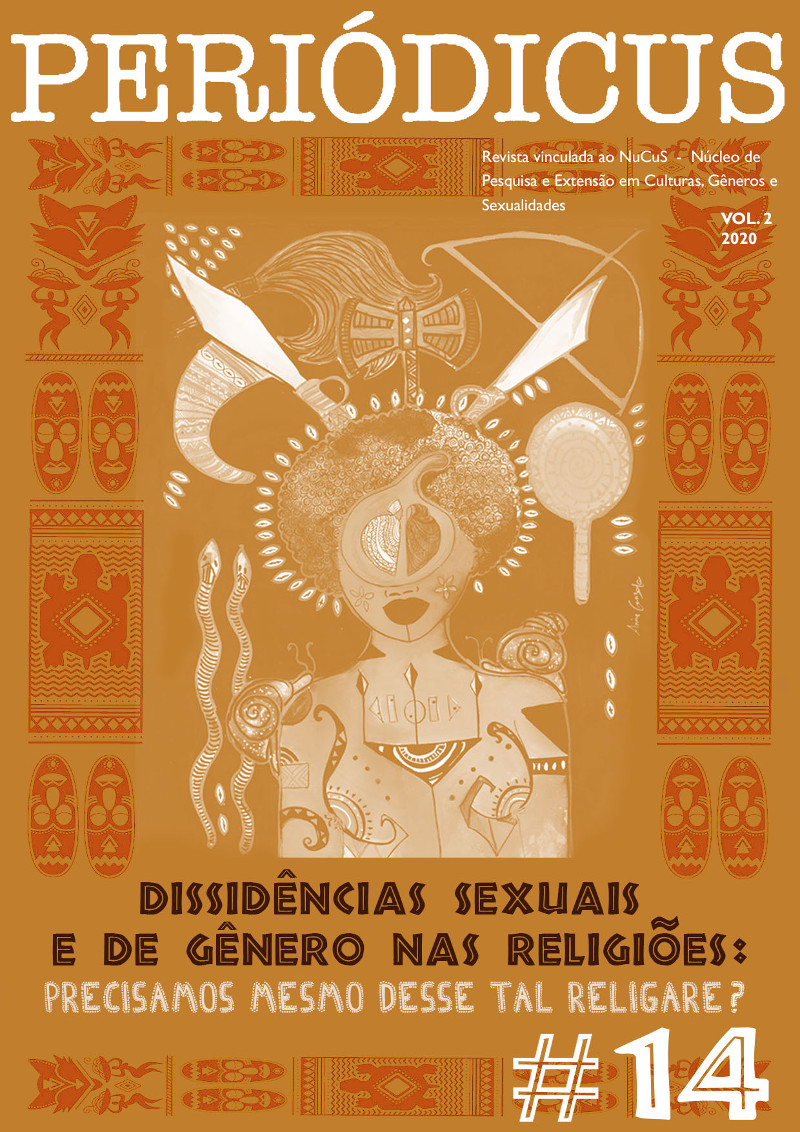Seeking the phenomenon: gender, sex education and religion in the classroom
DOI:
https://doi.org/10.9771/peri.v2i14.36308Abstract
Abstract: This article resulted from a master’s thesis, whose objective was to understand the phenomenon of theencounter between Science and Religion in a school environment during the teaching activities of teachers in the themes of
Sexual and Gender Education. From the recording of their experiences, we arrived at texts that could be analyzed using the
phenomenological method of Situated Phenomenon Analysis. Using this method, we searched for the main elements
significant to the phenomenon in the texts, which, once worked and improved (phenomenological reductions), enabled the
emergence of a discussion on the generalizations about the phenomenon. In short, our study shows the emergence, use and
debate of “Religion in the classroom” by students and teachers, by the analysis of the religious text, the recognition of
students’ religious dogmas and the reflection on the use of religious discourse in the classroom.
Keywords: Science and religion. Phenomenology. Sexual education. Genre.
Downloads
Downloads
Published
How to Cite
Issue
Section
License
Copyright (c) 2021 Eduardo Barrreto da Silva, Rosileia Oliveira Almeida

This work is licensed under a Creative Commons Attribution-NonCommercial 4.0 International License.
Autores que publicam nesta revista concordam com os seguintes termos:
Autores mantêm os direitos autorais e concedem à revista o direito de primeira publicação, com o trabalho simultaneamente licenciado sob Licença Creative Commons Attribution Noncommercial que permite o compartilhamento do trabalho com reconhecimento da autoria e publicação inicial nesta revista, sendo vedado o uso com fins comerciais.
Autores têm autorização para assumir contratos adicionais separadamente, para distribuição não-exclusiva da versão do trabalho publicada nesta revista (ex.: publicar em repositório institucional ou como capítulo de livro), com reconhecimento de autoria e publicação inicial nesta revista.
Autores têm permissão e são estimulados a publicar e distribuir seu trabalho online (ex.: em repositórios institucionais ou na sua página pessoal) a qualquer ponto antes ou durante o processo editorial, já que isso pode gerar alterações produtivas, bem como aumentar o impacto e a citação do trabalho publicado (Veja O Efeito do Acesso Livre).







